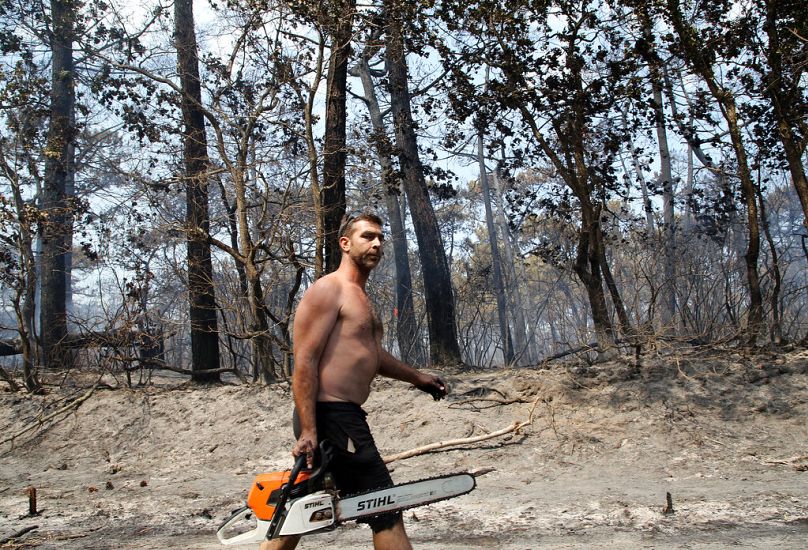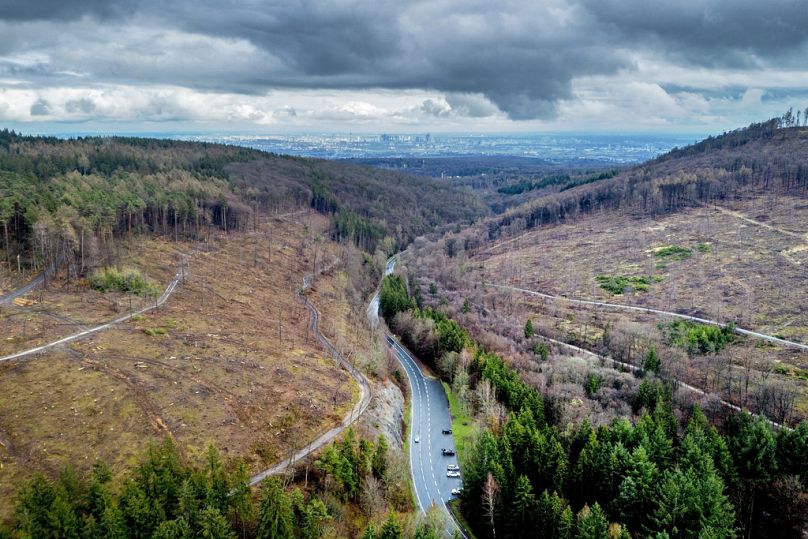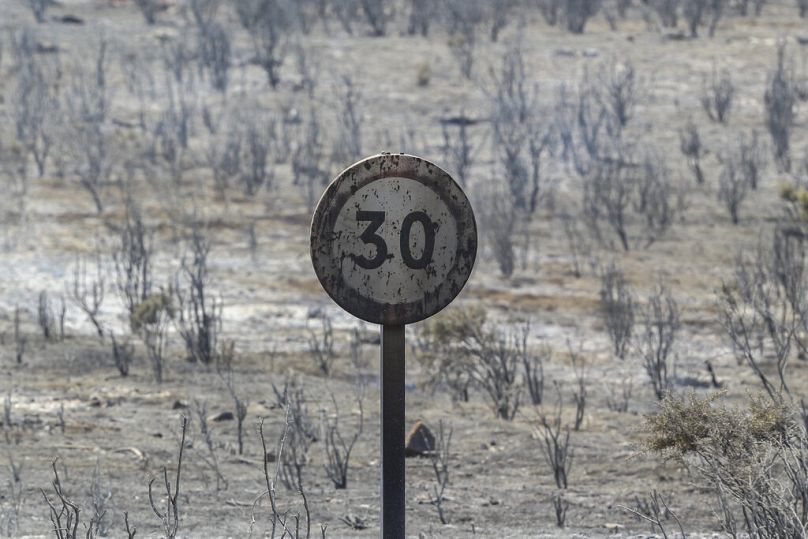Member states’ double standards on maintaining their own forests threaten not only to undermine the EU’s international credibility on environmental leadership but their very ability to galvanise global climate action, Hannah Mowat writes.
When the current crop of MEPs was elected in 2019, most appeared to grasp the gravity of the climate emergency - and were prepared to act.
Yet in the wake of the hottest month recorded on earth for 120,000 years, many of them tried to destroy a central plank of Europe’s Green Deal — the bloc's flagship plan aiming to make the continent “climate neutral” by 2050, which European Commission President Ursula von der Leyen called the continent’s “man on the moon moment” when she launched it four years ago.
The Nature Restoration Law, which would set binding targets for member states to “bring back nature across Europe, from agricultural land and seas to forests and urban environments”, has been under sustained attack for months by conservative politicians, specifically those from the European People’s Party (EPP).
On 12 July, it was passed by the slimmest of margins and in a dramatically diluted form after a knife-edge vote.
A startling truth
The battle over the Nature Restoration Law, which is far from over, highlights a startling truth.
Conservatives are prepared to sacrifice nature in Europe — and fight tooth and nail to try to sabotage laws to conserve it — despite being perfectly happy to penalise the destruction of nature in the global South.
Nowhere is this clearer than on forests.
In May, the EU adopted a historic law — the first of its kind in the world — to ensure that a raft of commodities linked to deforestation won’t be able to enter the EU market unless they are sustainably sourced.
The EU Deforestation Regulation (EUDR) requires companies to prove through geolocation coordinates that goods they sell in the EU don’t come from land deforested after the end of 2020.
The European Parliament passed it by a landslide. There was support at the highest political levels in the Netherlands, France and Belgium.
‘Environmental hypocrisy harms international credibility’
But these same cheerleaders for protecting nature abroad have tried to demolish legislation aimed at protecting it at home.
The vast majority of conservatives who voted for the EUDR voted against the Nature Restoration Law.
Extraordinarily, the EUDR's lead politician in the European Parliament was the author of an amendment to the Nature Restoration Law that cut ambition to a mere 10% of landscapes.
As the only organisation that works to protect both European and tropical forests through EU policy, this hypocrisy is not lost on Fern.
But more importantly, it is not lost on the major global trading partners who baulk at the idea that Europe, which has already destroyed virtually all primary forests, has the gall to call out forest loss in the South.
EU's ambition abroad must be matched at home
When Jair Bolsonaro was president of Brazil, his chief of staff refused the G7’s offer to provide $20 million (€18.1m) to fight the fires which raged in the Amazon.
“We appreciate (the offer), but maybe those resources are more relevant to reforest Europe,” he said.
But accusations of double standards haven’t just come from the far-right: Bolsonaro’s successor, Luiz Inácio Lula da Silva, delivered a similar message to Europe during his visit earlier this month, arguing that the EUDR amounted to disguised protectionism.
Urgent action is needed to protect forests, and the EU is right to take leadership — which is why Fern worked campaigned tirelessly for the EUDR in the decade before it became a reality (albeit campaigning for a stronger focus on incentives and partnerships).
But it is also clear the EU’s ambition abroad must be matched at home.
Member states’ double standards on maintaining their own forests threaten not only to undermine the EU’s international credibility on environmental leadership but their very ability to galvanise global climate action.
Hannah Mowat is the Campaigns Coordinator at Fern, an international NGO created in 1995 to keep track of the EU's involvement in forests.
At Euronews, we believe all views matter. Contact us at view@euronews.com to send pitches or submissions and be part of the conversation.














